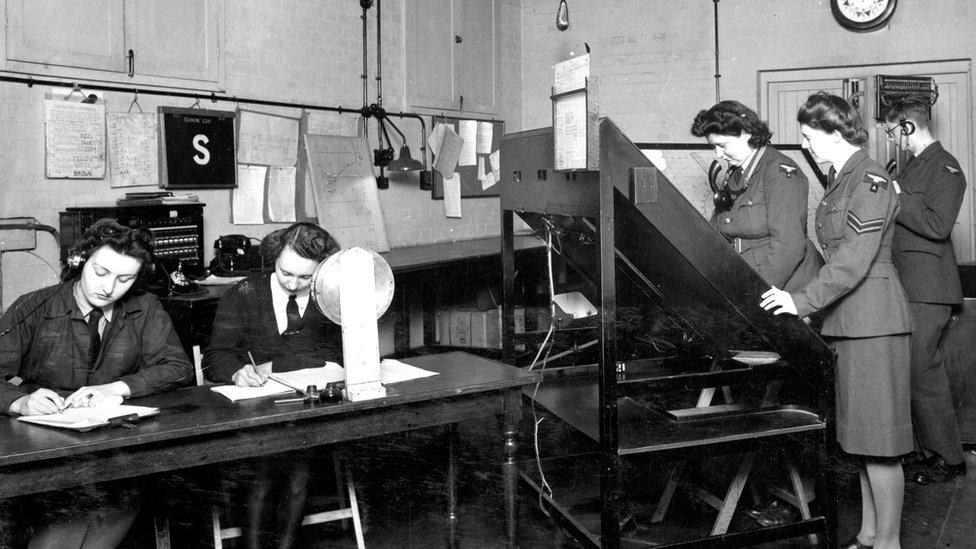Battle of Britain: Flypast and Westminster Abbey service mark 80th anniversary
- Published
Planes flew over Westminster Abbey in a box formation
Westminster Abbey has held a memorial service marking 80 years since the Battle of Britain, in the venue's first major event since lockdown.
The battle, fought entirely in the air, was a dramatic turning point in World War Two.
The abbey has held a service of thanksgiving on Battle of Britain Sunday every year since 1944.
A flypast took place after the service, with a Hurricane and three Spitfires flying over central London.
This year's memorial service had significantly lower attendance and social distancing in place.
Fewer than 100 guests attended the service, which usually attracts about 2,000 people.
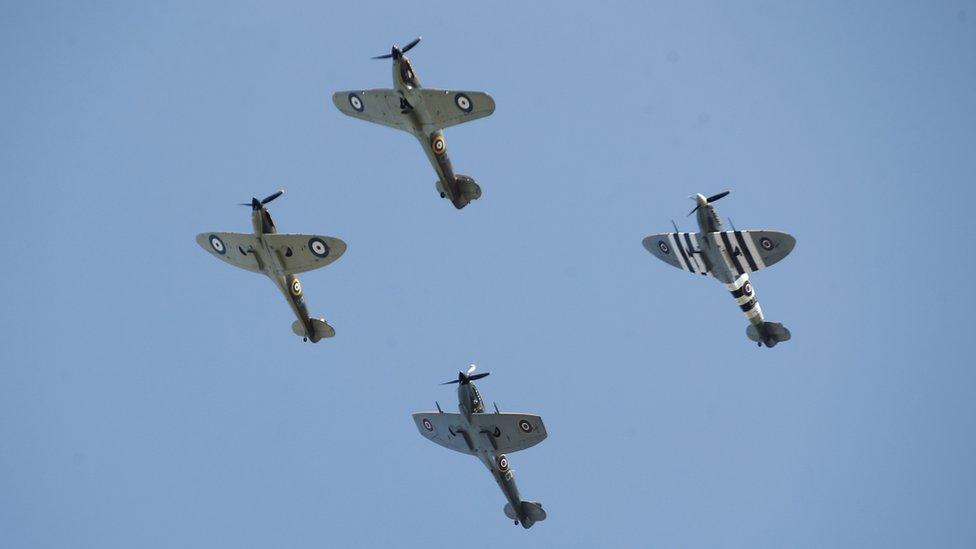
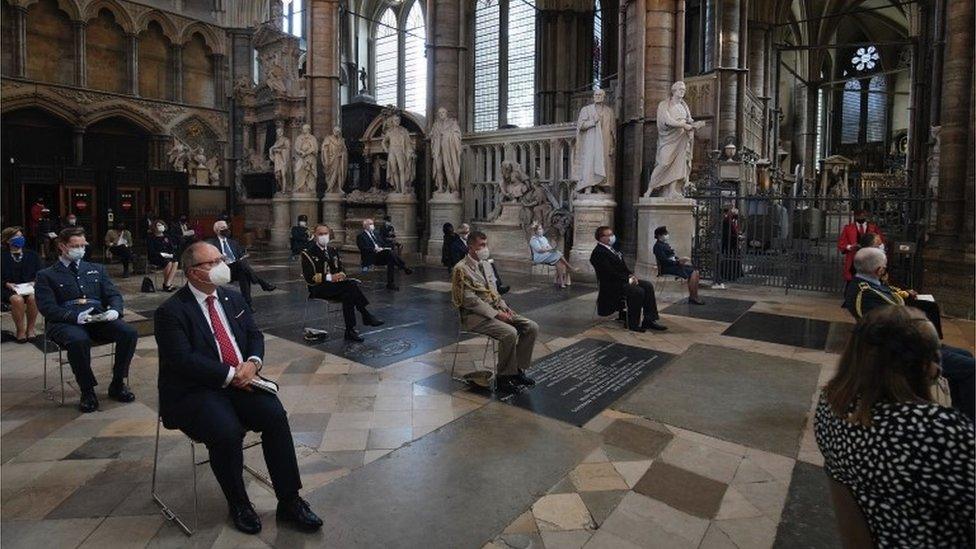
They included Prime Minister Boris Johnson, who gave a reading at the service, Labour leader Sir Keir Starmer and Marshal of the Royal Air Force Lord Stirrup, representing the Prince of Wales.
Chief of the Air Staff, Air Chief Marshal Mike Wigston, also gave a reading.
Guests wore masks - but those giving readings were allowed to remove them before doing so.
Each chair was placed two metres apart to allow social distancing, with protective plastic screens separating the north and south transepts of the abbey.
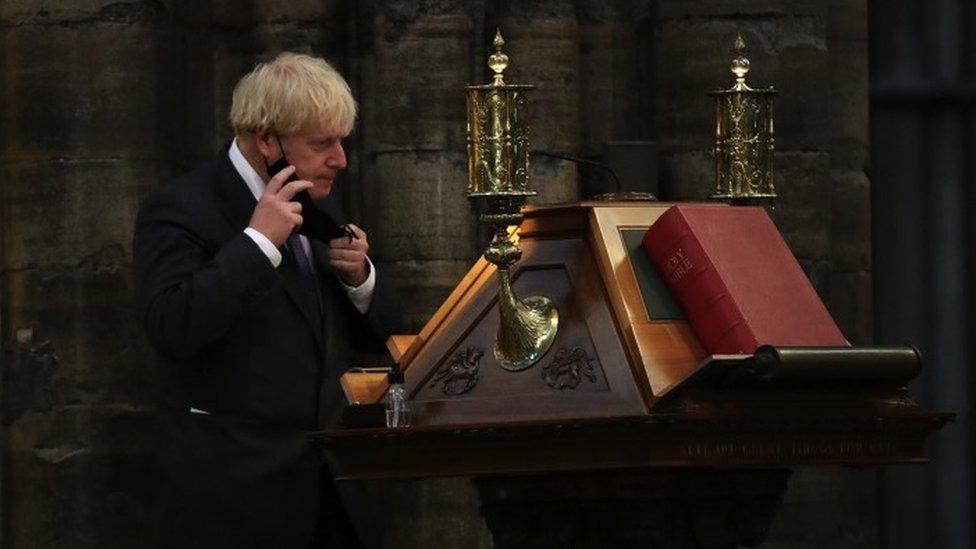
The prime minister removed his mask before giving a reading
In his address, Chaplain in Chief the Venerable Air Vice Marshal John Ellis, honoured NHS staff and key workers in the "fight against an invisible army", drawing comparisons between the Battle of Britain and the coronavirus pandemic.
He said: "Once again there have been sacrifices made, often quiet, often humble, unnoticed by many.
"Although starkly different events, each of them has two things that are so important for our humanity - service and value. We have seen the selfless giving to a greater cause."
A statement from the organisers said the service on Sunday morning was "reduced in stature but not in spirit".
The last major service to take place at the venue was the Commonwealth Day service held on 9 March, two weeks before the UK went into lockdown in response to the coronavirus pandemic.
The service, which remembered the 1,497 pilots and aircrew who died, was led by the Dean of Westminster Abbey, Dr David Hoyle.
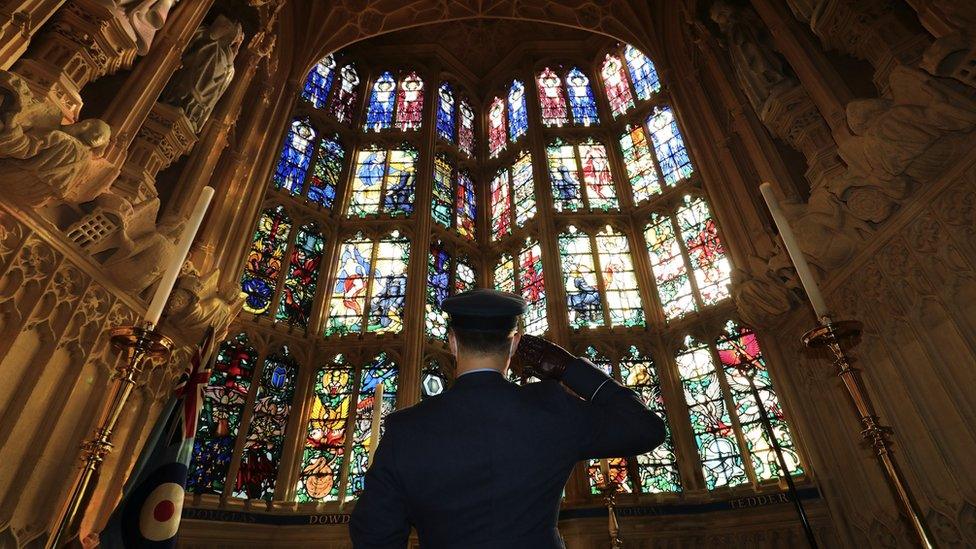
Although the battle took place between July and October in 1940, 15 September is Battle of Britain Day - the date of a decisive victory by the RAF.
The RAF defended the skies over southern England, as Hitler's Luftwaffe flew daily attacks ahead of a planned invasion.
Some 1,120 Luftwaffe aircraft were sent to attack London, but were repelled by 630 RAF fighters - and two days later Hitler postponed his plans to invade Britain.
Commemorations have been limited this year due to coronavirus restrictions, but a variety of tributes took place across the UK, including special exhibitions from the Imperial War Museum.
- Published15 September 2020
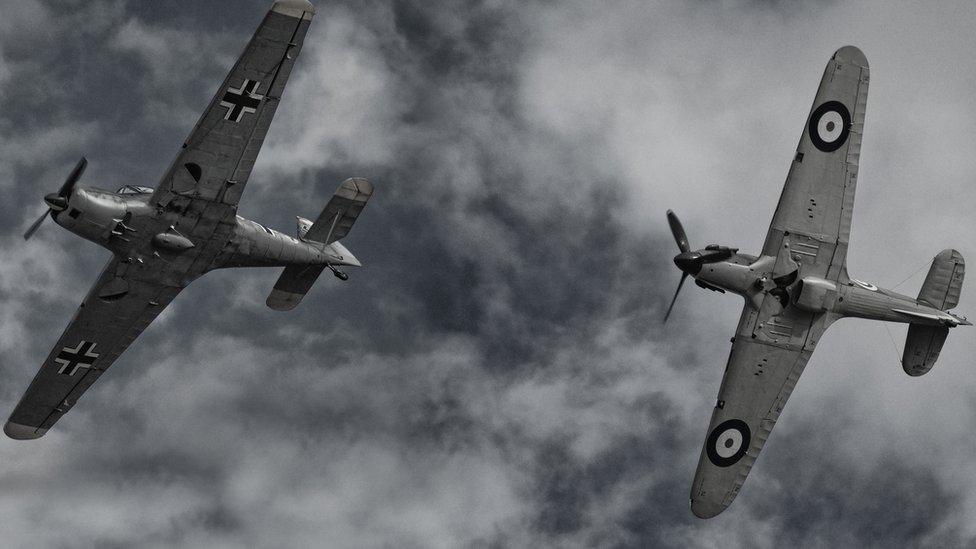
- Published15 September 2020
